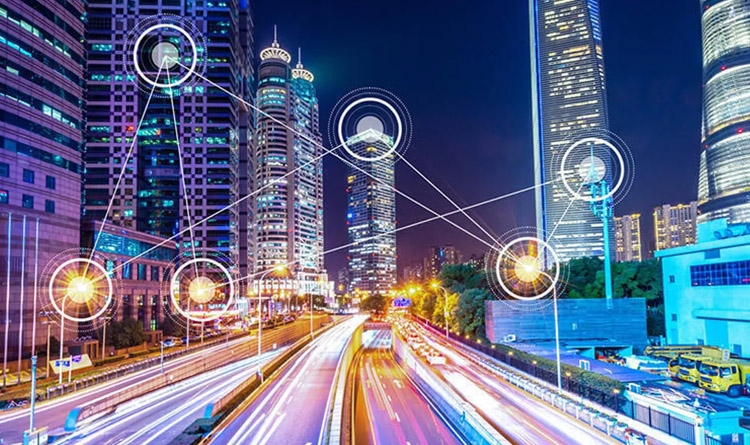
Smart cities leverage cutting-edge technologies and data-driven solutions to enhance the quality of life for residents, improve sustainability, and optimize resource management. The integration of technology into daily urban life not only enhances convenience but also enables a more sustainable, resilient, and responsive city that adapts to the evolving needs of its inhabitants.
The technical components of smart communities involve a combination of IoT, data analytics, AI, connectivity, and advanced infrastructure to create intelligent, efficient, and sustainable urban environments.
Internet of Things (IoT) & Sensor Networks
At the heart of a smart city are interconnected systems and devices that form an Internet of Things (IoT) ecosystem. These include sensors integrated in infrastructure and public spaces. and collecting real-time data on traffic patterns, energy consumption, air quality, waste management, and water usage.
Smart buildings equipped with energy-efficient technologies and automated systems contribute to sustainability efforts. Buildings and infrastructure are equipped with intelligent systems that optimize energy usage, enhance security, and improve overall efficiency. This includes smart streetlights, energy-efficient buildings, and integrated transportation systems. Smart grids enable the efficient distribution of electricity, integrating renewable energy sources and reducing environmental impact.
Data Analytics & Artificial Intelligence (AI)
These sensors communicate with each other and with centralized systems to provide data. The data collected from sensors and other sources is analyzed to derive meaningful insights. This wealth of information is then processed through advanced data analytics and artificial intelligence (AI) systems to derive actionable insights for urban planning and decision-making. AI algorithms and data analytics play a vital role in processing large datasets to identify patterns, trends, and areas for improvement in services and infrastructure.
Connectivity and Communication
In a smart city, connectivity is paramount. High-speed and reliable communication networks, often facilitated by technologies like 5G, ensure seamless connectivity between devices, enabling efficient data transfer and communication. This connectivity extends to smart infrastructure, such as intelligent transportation systems that optimize traffic flow, reduce congestion, and enhance public transit. Smart communities use blockchain technology to enhance security and transparency in transactions and data sharing. This is particularly relevant in areas such as property transactions, identity verification, and supply chain management.
E-Government with Open Data & Digital Services
A smart city places a strong emphasis on citizen engagement and digital services. Residents can access information, participate in governance, and avail public services through user-friendly digital platforms. Smart communities often implement open data platforms that allow residents, businesses, and government agencies to access and share information. This transparency promotes collaboration and innovation within the community.
Cybersecurity
With the increased connectivity and reliance on technology, ensuring the security of data and systems is crucial. Smart communities implement robust cybersecurity measures to protect against cyber threats and safeguard residents’ privacy.
